Slack fight: Has the hype over WhatsApp alternatives come to an end?
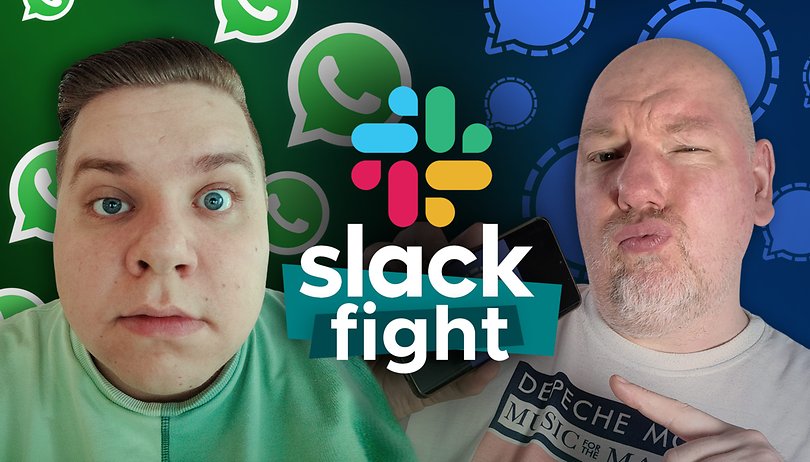

Read in other languages:
The dust has settled and the ring cleared for the next Slack fight round. This time around, the topic of discussion centres around instant messengers: specifically WhatsApp and Signal. It did seem as though the time is ripe to consider the possible demise of WhatsApp considering what happened a few weeks ago. Now that we are past the hype, has there been a fundamental change? Have people really flocked to WhatsApp alternatives in hordes? Antoine and Casi will duke it out in this latest Slack fight round.
Also read: Slack Fight #1: Phones without chargers - is it a sincere attempt at saving the planet?
Let's talk about WhatsApp - again! How many years has it been since WhatsApp has been criticized? Ever since the hugely popular instant messaging app was gobbled up by Facebook, users did consider whether it is time to migrate to greener pastures and settle for an alternative.
There are plenty of available alternatives to WhatsApp that users have seriously considered, especially after WhatsApp announced that it would share our data with Facebook in the future. That ought to be the nail in WhatsApp's coffin, right? However, WhatsApp made a U-turn at the eleventh hour and also confirmed that they would not share data with Facebook in the EU region - at least for now. However, do you believe that this is the case?
There are good reasons to turn your back on WhatsApp - and many have also taken this opportunity to ditch WhatsApp for other instant messaging apps. It does not look as though it is a half-hearted attempt this time around, as users are beginning to take a serious stance at safeguarding their privacy. This has led to the rise of the installation of alternative instant messengers. Antoine and I are at loggerheads over this situation since he believes that there has been no real shift in the user base. I think I am right, he thinks he is right, everyone has an opinion on the situation. Only Antoine doesn't know that he is actually wrong, which is why we aired our respective views on Slack.
Round 1: WhatsApp alternatives are more popular than ever before, but does that mean anything?
Casi: I think that the winds of change have arrived. For the very first time ever, Facebook/WhatsApp is beginning to shift uncomfortably in their perch. In just three days, Telegram enjoyed an increase of 25 million new users, while Signal achieved a 500% increase of users (from 10 to 50 million!) based on Google Play statistics. And to think that all of it happened in a single day alone! People are indeed ditching WhatsApp for greener pastures!
How it started vs how it's going ? pic.twitter.com/ERiFpZUz6c
— Signal (@signalapp) January 14, 2021
Antoine: The hype surrounding the post-WhatsApp era is already on its last legs. In fact, Signal experienced 7.5 million downloads in just a single week last January, which was a 4,200% increase from the previous week. Telegram, also another secure instant messaging app, experienced 9 million downloads, which was a 91% increase over the corresponding period. All of these figures were presented by analysts at Sensor Tower.
But do you remember the "record" download figures that were announced by the various European governments when they released their contact tracing apps such as Tous Anti Covid (formerly known as Stop Covid), or the Corona Warning app at the beginning of the coronavirus pandemic?
A download and a subsequent installation does not automatically translate into a new user. It is fashionable these days to jump aboard the cancel culture bandwagon that is further reinforced by media coverage, contributing to the surge in popular WhatsApp alternatives. When I observe the top 10 apps on the Play Store (in Germany), Signal and Telegram have dropped out of the top 10, while WhatsApp continues to cement its place in the top 5.
As with any fashionable effect, just like a meme, most people would switch to something else very quickly and then simply forget about it. It is no coincidence that Signal and Telegram do not boast about the number of new users that they've gained ever since the WhatsApp scandal erupted, but only shared the number of downloads or their respective rankings in the app stores.
Similar to how Elon Musk or Jeff Bezos have not tied up their entire fortunes in cash, Signal and Telegram have not necessarily experienced a net gain of active users (I emphasize on the word "active") compared to just downloads and installs.
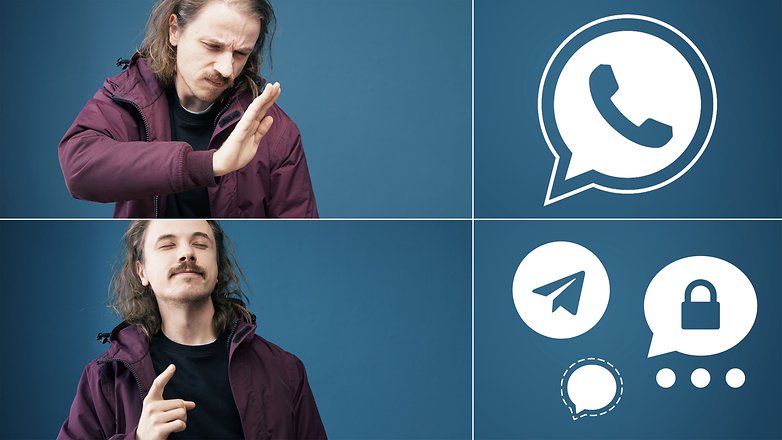
Casi: Sure, it makes perfect sense that the number of downloads does not automatically translate to active users. However, that doesn't change the fact that the apps have already been installed, be they dormant or otherwise. I am communicating with hundreds of users on WhatsApp and just shy of forty on Signal, and around eighty on Telegram. In certain cases, I was able to shift the conversation from WhatsApp to alternative platforms recently; while for others, it may happen later.
We know all about Facebook: The next scandal is just around the corner! There will be the next time where Facebook trips up. When that happens, people will either remember that they already have another instant messaging app that is installed on their smartphone, or at least remember that they heard about other alternatives such as Signal not too long ago. At that point in time, perhaps another 50 million people will install the app, and a growing number of them will use it.
It is like a boxing match: with the right qualities, you can dance in the ring and put down your opponent with the right combination of hooks and uppercuts. However, doing so will be more difficult the next time as your game plan has been studied and observed, with counter-strategies drawn up by your opponent. Eventually, even the best boxer in the world will hit the canvas. The same will happen to WhatsApp eventually considering how Facebook has taken our privacy rights for granted, but it is only a matter of time before the next big flare-up happens.
Should - or can, Signal, Telegram & others really replace WhatsApp?
Antoine: That's a lot of "ifs." But the fact is, Signal is not meant to replace WhatsApp at all. Brian Acton, the Signal Foundation co-founder who publicly called for people to leave Facebook in the past, has refused to encourage the very same users from turning their backs on WhatsApp.
"I have no desire to do everything that WhatsApp does. My desire is to give people a choice," he said in an interview with TechCrunch last January. "Otherwise you're locked into something where you don't have a choice. It's not a strict all-or-nothing scenario." Instead, Brian Acton envisions people using Signal for conversations with family and close friends, while using WhatsApp for other less private, less intimate chats. In short, it is not a zero-sum game.
For me though, this raises the question of non-existent interoperability between different messaging apps. As it stands, the transition between WhatsApp, Telegram, WhatsApp, and other alternatives is not seamless enough. There are too many loopholes to work with, and it is simply too much work for the average Joe. In my opinion, few users have gotten used to juggling different apps just to communicate with different members of their social circle. I know I haven't made the effort to!
There are other possible solutions such as the DM Me app that I checked out, allowing you to automatically switch from one messaging app to another depending on which one is being used by that particular contact. However, it very much remains a do-it-yourself task that is anything but intuitive and ergonomic. Does anyone remember Trillian, the web-based app that brought together MSN Messenger, ICQ, and Yahoo! Messenger under a single roof?
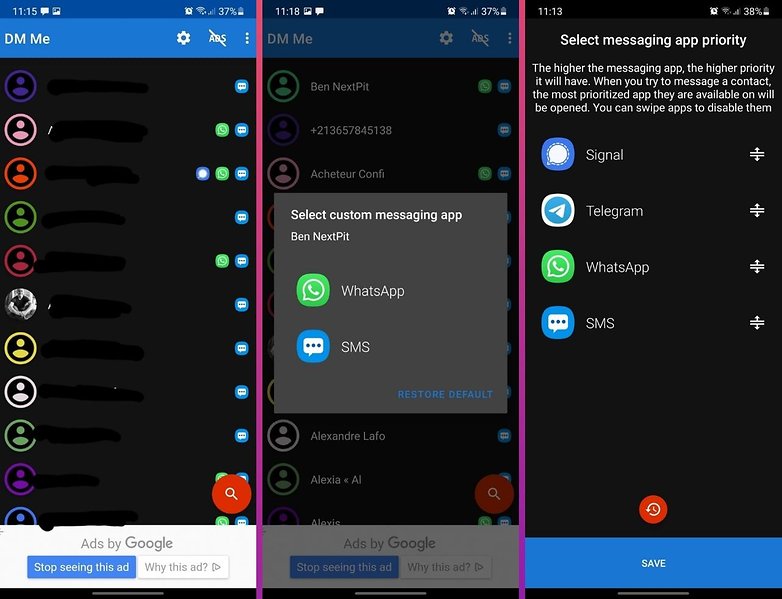
Casi: I'm glad you talked about Brian Acton, the co-founder of the Signal Foundation, and what he mentioned. After all, he's also WhatsApp's co-founder and definitely knows what he's talking about. It's exactly his approach that he makes sense of Signal and others having too few users: It's not about an app being as big or even bigger than WhatsApp. It's about people recognizing that there are alternatives out there and using them based on their respective purposes.
Take this example: people used to centralize all of their financial activities at their bank. They opened their salary account there, and it was also the place where they saved up for their children's future, took out insurance policies as well as loans/mortgages. Today, you have an online account at one bank, purchase stocks from a different account, and stashed your retirement savings elsewhere. Nobody complains about obtaining different financial services from different institutions.
Perhaps another example that offers a more fitting paradigm with the digital era is this: A few years ago, no one would have thought that at some point in time, Facebook would face a threat to its existence. Then people flocked to Instagram in droves, and then to TikTok. Facebook can buy up all the startups for all I care or replicate their apps, but we still see people migrating to different platforms for different uses.
Why should instant messengers be any different? Already, almost every other instant messenger offers more capabilities than WhatsApp. People will realize over time where their respective strengths lie in. For chatting, you're better off on option A, if you value privacy then option B would be better, while those who tend to send larger files, you'd be better off with option C, while option D works best for status updates. They complement one another and are not in competition.
This means that there is no single competitor that can take over the function of WhatsApp, but together, they do have an effect. "Steter Tropfen höhlt den Stein" (Constant dripping wears away the stone) so goes a German proverb, and that is exactly what is happening here. Sooner or later, people will learn to use the best app that is suited for a particular purpose. Apart from that, WhatsApp does not have a monopoly on instant messaging.
It is a process that will take a while, that is clear as day. But it's also just a process that began the last time there was trouble brewing over WhatsApp, and it is one that won't be stopped. It's like trying to get toothpaste back in the tube. This race is not a sprint - it's a marathon!
Morals vs. profit and the difficulty of making a change
Antoine: Like you, I remain convinced that most frequent users will always choose convenience over protection. Also, there is an app for each niche/target group, so it is important to have choices.
Yes, people who care about protecting their personal data and are sufficiently informed about the issue didn't wait for the WhatsApp scandal to erupt before switching to other privacy-friendly alternatives.
The WhatsApp scandal had the notoriety to once again highlight the importance of data privacy issues, and how it is collected by "free" services. There is no free lunch in this world, that's for sure. However, I don't think Signal or Telegram followed WhatsApp's footsteps in this matter by leveraging on such an advantage.
They are preached to the choir without really educating users or making themselves attractive enough to rope in the average users who, like any other mainstream app, comprise the bulk of WhatsApp's user base.
For now, the number of users who are committed to protecting their privacy and data isn't enough for the tide to shift. Neither Signal nor Telegram has arrived at a critical user mass that would allow them to be considered credible alternatives to the behemoth that is WhatsApp.
I'm not saying this with enthusiasm - far from it. But I want to be realistic. Having alternatives and choices is good. But to see a change in how WhatsApp and other tech giants handle our data and privacy ethically, we need more than just specialized alternatives. You need actual competitors, heavyweights who are capable of posing a real and lasting threat to WhatsApp, so that WhatsApp's hands are forced to change or go the way of the dodo.
And right now, that is simply not happening at all. How many scandals must there be before there is enough momentum gathered to create a shift in people's minds? Privacy shouldn't be a special feature that is tailored to a certain type of user and provided by a certain type of app.
We're talking about blowing up the issue, making the mainstream aware of it, right? Why would WhatsApp want to change anything unless there was a threat that could break up their monopoly? And how could there ever be a big enough threat when all of the available alternatives are content to cater to their own respective niches without appealing to the masses, aka the critical user mass who are actually required to make a change? It is somewhat similar to politics in a democracy: you get the government that you deserve.
Casi: You have hit the nail on the head there, my dear Antoine. Still, I believe that it is not about size alone. A few years ago, only Apple and Samsung were happily duking it out against each other in the smartphone world. Today, there's also Oppo, Xiaomi, Huawei, Vivo, and so many others who may not have the power and size concentration of Apple and Samsung individually but are slowly gnawing away at the market share of these two behemoths.
I could continue with different examples of how, in a global world, it's getting harder and harder for the big guys - because they're also attracting all of our attention for each mistake that they make. And Facebook will no doubt continue to make mistakes.
It's probably not an enviable position to be in, considering how mountains are made out of molehills these days. But it just goes to show that in this day and age, you cannot make a mistake without drawing attention to yourself, regardless of how small the mistake is.
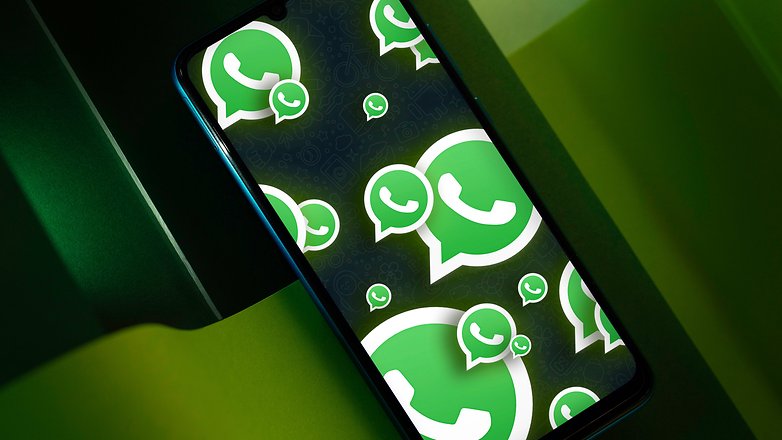
And we've seen it too, haven't we? In no time at all, WhatsApp responded to the complaints, made a U-turn, told us who live in Europe that we will not be affected by the changes. Why are they telling us this when they are supposedly in an unassailable position? They've already noticed that the winds of change are coming. When will you notice, Antoine?
Antoine: I don't agree with this example at all. None of the emerging Android manufacturers in Europe have influenced Apple at all in their market approach. Worse still, most of them have started emulating Apple and their iPhones (Xiaomi, Oppo, Huawei, et al). And they continue to follow the trends set by Apple, including the introduction of phones without chargers to "save the planet" is just one of the most recent examples among many others.
Apple continues to sell high-priced phones. iPhones are still among the best-selling smartphones in the world. Nothing has changed. You simply have more choices. But the balance of power continues to tip in Apple's favor. Chinese manufacturers have not revolutionized the market in any way at all. Even Samsung aspires to have an ecosystem that is closed just like Apple's, everyone wants to be the dominant force.
I really don't think that comparison applies to the WhatsApp situation very well at all, including the point that you are trying to make. Idealism is not a good business model at all. Appealing to the masses is. And to do that, you have to go out of your way to help people and "force" them to make a different choice. And when I say a different choice, I don't simply mean that it's the right thing to do. Morality will never triumph over our innate selfishness and desire to obtain the best possible outcome. But you have to make your product or service ethical enough so that people no longer have a reason to remain stuck in tradition.
Signal and Telegram should make their apps as feature-rich or even better than WhatsApp, throwing in superior privacy as a bonus, if they really want people to make a permanent switch. If they expect people to simply make the jump because they want to protect their privacy - which of course they should - then I would say that it is simply a vain idealistic effort.
You can't expect people to do the right thing simply by sacrificing benefits just because it's the right thing to do. Any friction, any obstacle, or difficulty will discourage most people easily enough, and cause them to take the path of least resistance. That's what I noticed; that's what I believe!
This concludes our second Slack fight, following Ben and Antoine's duel a few weeks ago. Antoine and I argued a bit more about smartphone manufacturers after that conversation, but that's a different story for another time. For today, we now want to hear from you which side you are on. Feel free to vote and leave your opinion in the comments as well. Also, do let us know what you think of our Slack fight concept and who knows, maybe you might have spicy suggestions for us on what we could trash out next time.







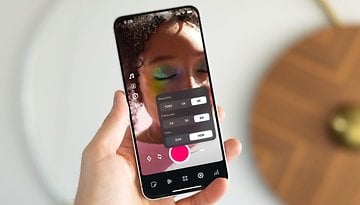
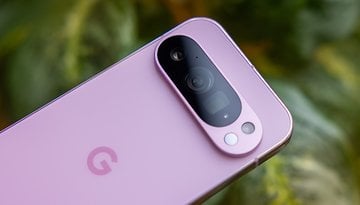







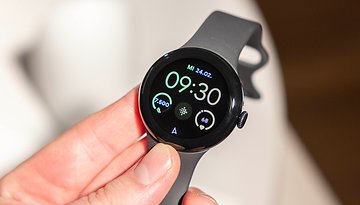


I'm sure that WhatsApp days are coming to an end. People are more educated now and more of them care about their online security. No one wants to share all of their data. So any of the messengers can now become the main alternative, even not very well known as Utopia p2p u.is or Wickr, which have much better encryption and higher security level.